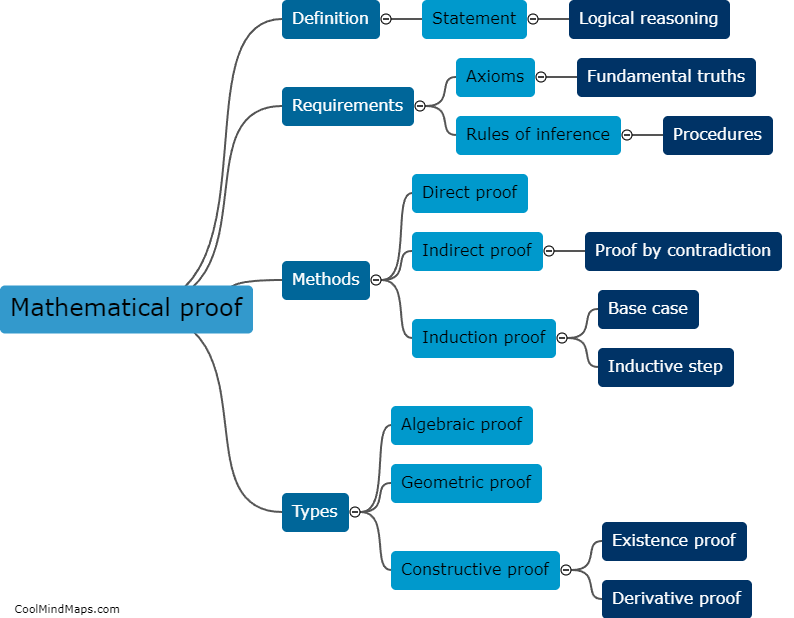What is a mathematical proof?
A mathematical proof is a systematic and logical argument that verifies the truth of a mathematical statement. It is a set of logical steps that demonstrate why a certain mathematical claim or theorem is true. Proofs hold a fundamental role in mathematics, offering rigorous justification for mathematical knowledge and allowing mathematicians to establish new theorems based on previously proven statements. A proof starts with established axioms or assumptions and uses deductive reasoning and logical inference to derive conclusions and establish the truth of the given statement. Proofs can be presented in various forms, including algebraic, geometric, or logical reasoning, but they all adhere to strict rules of logic and consistently follow a clear sequence of steps to reach a valid conclusion.

This mind map was published on 29 September 2023 and has been viewed 98 times.











